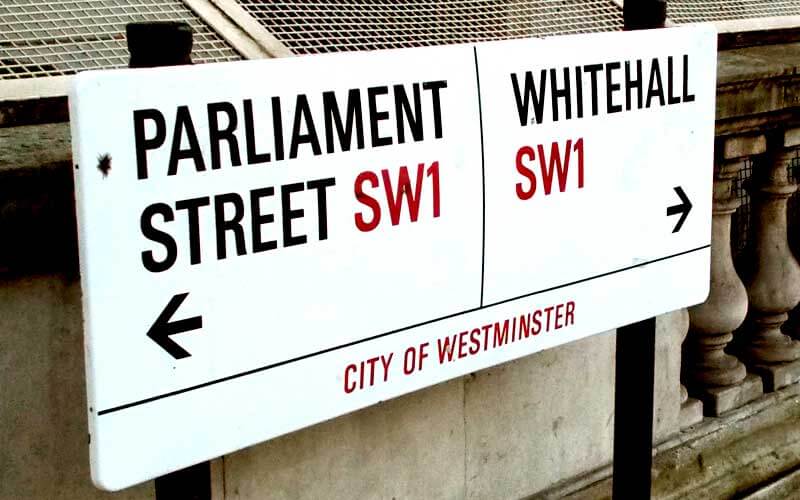A government minister has described a proposal to make it easier for disabled tenants to make access improvements to the common areas of residential properties as “a new policy”, 12 years after it was included in Labour’s Equality Act.
The proposal to impose a duty on landlords in England and Wales to allow reasonable access upgrades to hallways, staircases and entrances became law just before the 2010 general election, but successive Tory-led governments have refused to bring it into force.
But today (Thursday), the Government Equalities Office (GEO) said it was launching a consultation on “a new policy which would require landlords to make changes to communal spaces outside disabled people’s homes, to make them safer and more accessible”.
GEO claimed the policy would “expand” the Equality Act, when in fact the duties are already part of the act but have just not been brought into force by successive Tory-led governments.
It said the “new” policy was an example of how Boris Johnson’s Conservative government was providing “the leadership needed in difficult times”, and how it was ensuring “everyone is able to reach their full potential”.
Kemi Badenoch, the equalities minister, said: “This policy would ensure every disabled tenant has the right to ask for changes to where they live, so they can access and leave their homes without fear or difficulty.
“We want to hear the views of everyone impacted by our plans, to make sure we can make lasting change to people’s lives.”
Even now, 12 years after the proposal was included in the Equality Act, there will be further delays while the government holds a delayed 10-week consultation.
Last year’s National Disability Strategy – later declared unlawful by the courts – included a pledge to bring the provision into force, and said a consultation was planned for 2021.
The government previously promised to bring the law into force more than four years ago, in March 2018, although it said then that it would need to carry out “further work on identifying and assessing any additional burdens on local authorities” before it could say when the laws would be implemented.
The Ministry of Housing, Communities and Local Government said at the time that it was “working towards a full commencement date” for the proposals.
The provisions are contained in section 36 and schedule four of the Equality Act 2010 and relate to the “common parts” of blocks of flats and other residential premises.
Once these parts of the act are implemented, those responsible for the common parts of a building will have to give permission for reasonable adjustments to be made – such as installing a stairlift, better lighting, a parking space near the entrance, a handrail or a ramp – if asked to do so by a disabled tenant or leaseholder.
The landlord or owner of the freehold of the building will still be able to ask the disabled person to pay for the work, although a disabled facilities grant from the local council could contribute to the cost.
Asked why Badenoch was describing the proposals as an “expansion” of the Equality Act and a “new” government policy, a GEO spokesperson had failed to comment by noon today.
Badenoch also failed to explain why it had taken more than 12 years to introduce the “new” policy.
The consultation document had not been published by noon today.
A note from the editor:
Please consider making a voluntary financial contribution to support the work of DNS and allow it to continue producing independent, carefully-researched news stories that focus on the lives and rights of disabled people and their user-led organisations.
Please do not contribute if you cannot afford to do so, and please note that DNS is not a charity. It is run and owned by disabled journalist John Pring and has been from its launch in April 2009.
Thank you for anything you can do to support the work of DNS…

 ‘Real danger’ that disabled people will not benefit from £39 billion for social and affordable homes
‘Real danger’ that disabled people will not benefit from £39 billion for social and affordable homes Disabled students set to protest over cuts in support
Disabled students set to protest over cuts in support Disabled peers speak of ‘daily fight’ against access barriers in House of Lords
Disabled peers speak of ‘daily fight’ against access barriers in House of Lords